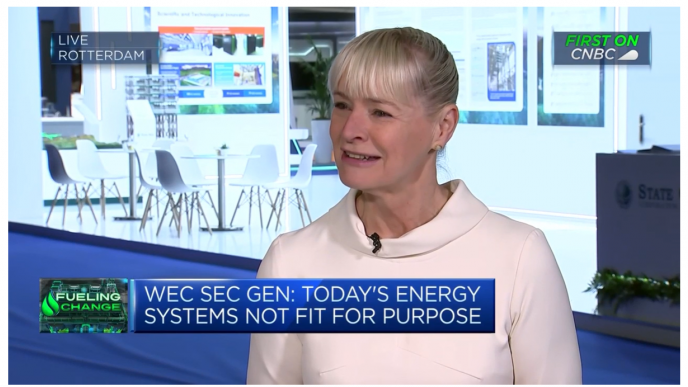Download the Infographic: Climate Change - Implications for the Energy Sector -Summary from IPCC AR5
Publicación en Español: Cambio Climático: Implicaciones para el Sector Energético
Infografía en Español: Cambio Climático: Implicaciones para el Sector Energético
-
Energy demand is increasing globally, causing an increase in greenhouse gas emissions from the energy sector. The trend is set to continue, driven primarily by economic growth and rising population.
-
Climate change presents increasing challenges for energy production and transmission as a result of temperature increase, extreme weather events, and changing precipitation patterns.
-
Significant cuts in GHG emissions from energy can be achieved through a variety of measures, including cutting emissions from fossil fuel extraction and conversion, switching to lower-carbon fuels, improving energy efficiency, increasing use of renewables and nuclear, introduction of carbon capture and storage (CCS), and reducing final energy demand.
-
Strong global political action on climate change would have major implications for the energy sector.
-
Incentivising investment in low-carbon technologies will be a key challenge for governments and regulators to achieve carbon reduction targets.
Philippe Joubert, Advisory Board member for the Cambridge Institute for Sustainability Leadership, Executive Chair of the WEC’s Global Electricity Initiative, and former President of Alstom Power, also commented: “The latest climate science is clear about the reality and impacts of climate change. This summary report helps business to understand the scale and urgency of the issues involved for the energy sector and should be seen as a call to action for the leaders of a sector which is responsible for over a third of CO2 emissions. Leading businesses in this sector increasingly realise that business as usual is no longer possible nor acceptable.”
Rajendra K. Pachauri, Chairman of the IPCC, added: “The energy sector has a critical role to play in the mitigation of greenhouse gases and in helping the world to adapt to the inevitable impact brought by climate change, some of which would directly affect energy-related activities. A thorough understanding of the implications of climate change will help the energy sector plan strategically for the future. AR5 contains a wealth of relevant information which will be central to this planning in the years to come. The initiative of the World Energy Council, the University of Cambridge, and the European Climate Foundation will play a useful role in embedding an understanding of climate science and its significance for the energy sector.”

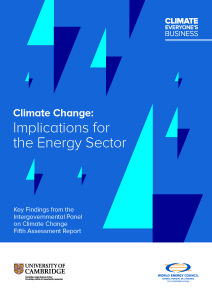
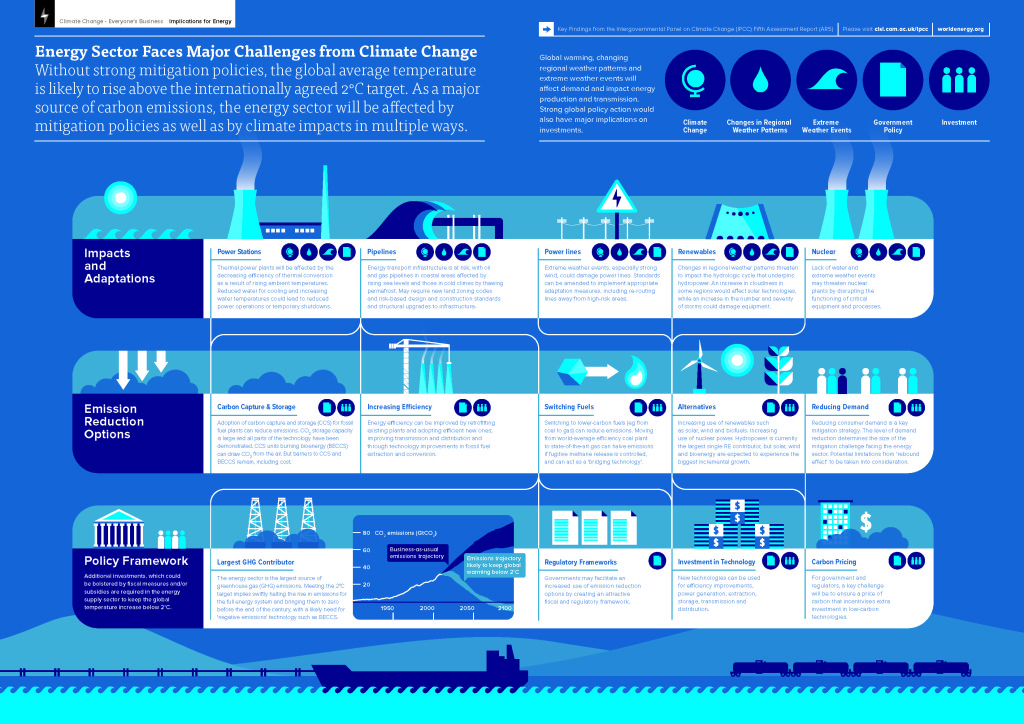


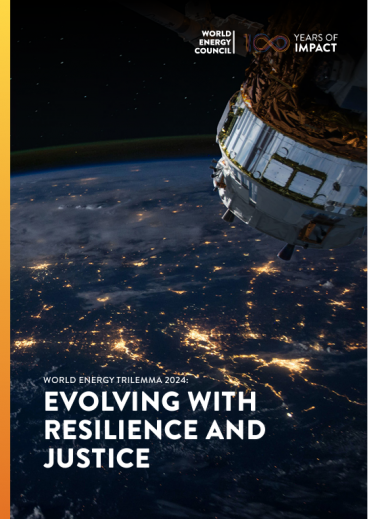
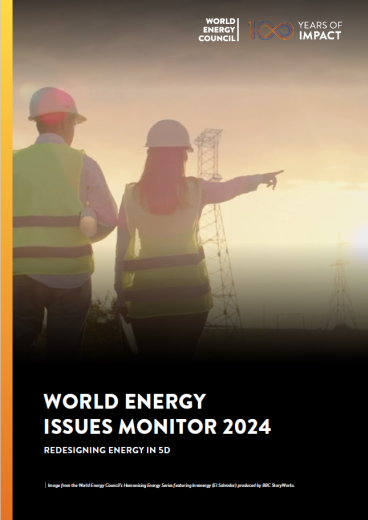

_688_387_s_c1_c_c.jpg)
